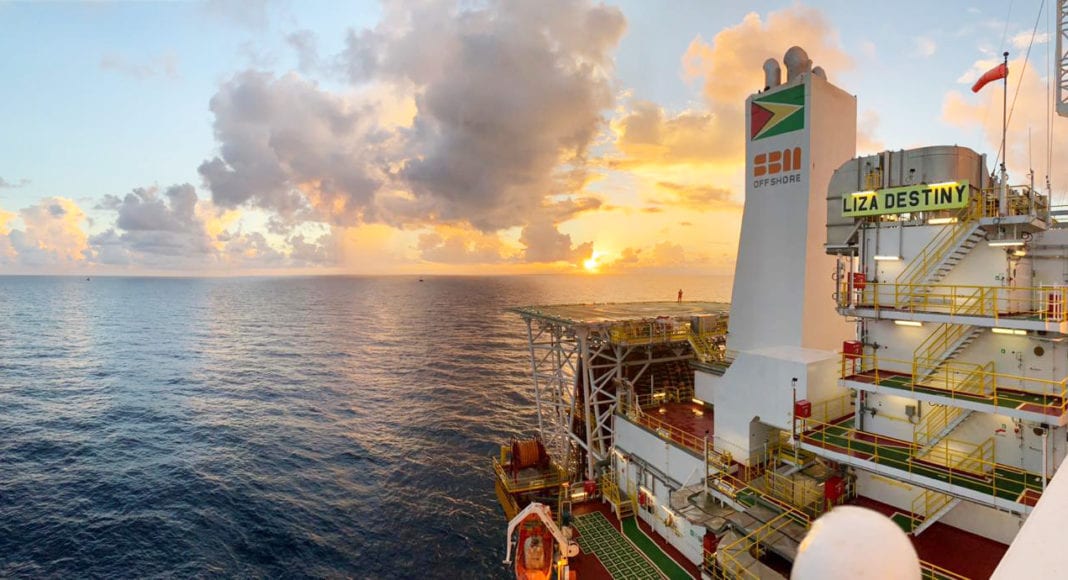Oil companies operating in Brazil have long complained about delays getting drilling permits and environmental impact reports approved by the Brazilian Institute of Environment and Renewable Natural Resources (IBAMA). Just recently, S&P Global Platts reported that Brazil’s National Energy Policy Council (CNPE) dealt a sharp blow to the country’s offshore exploration and production program by removing 32 high potential but environmentally sensitive offshore blocks from the 17th bid round during the policymaking board’s December 9 meeting.
Several of the removed blocks were expected to generate heated competition despite environmental concerns because of the potential for holding deep-water deposits similar to ExxonMobil’s Stabroek block discoveries off the coast of Guyana. The U.S. oil major has made 18 discoveries on the block since 2015 with an estimated oil equivalent resource of around 9 billion barrels. Oil production started at the Liza Phase 1 Development last December.
According to geologists, the same play is believed to extend along Brazil’s northern coast, especially in the Foz do Amazonas and Para-Maranhao basins, S&P Global Platts stated in a report this month.
Total bailed out of the Foz do Amazonas Basin after a failed, six-year bid to win drilling permits in five offshore blocks. Total purchased the blocks at Brazil’s 11th bid round held in 2013 and planned to drill seven wells. Total transferred its 40% operating stake in the FZA-M-57, FZA-M-86, FZA-M-88, FZA-M-125 and FZA-M-127 blocks to Petrobras for an undisclosed amount on September 28. Petrobras now owns a 70% operating stake in the blocks, with BP Energy retaining the remaining 30%.
Petrobras has decades of experience dealing with Brazilian regulators and enormous influence at the government level, which has led many industry officials to expect a quick resolution to the dispute over drilling. The company also included $1 billion in investments earmarked for the Foz do Amazonas Basin and Brazil’s equatorial margin in its recently released $55 billion spending plan for 2021-2025.
But CEO Roberto Castello Branco fired a warning shot across IBAMA’s bow during a webinar on December 3, saying that Petrobras could take its investment cash to Guyana to drill if permits weren’t forthcoming.
“This has to be resolved,” Branco said. “We have big oil prospects there, and we’re prohibited while Guyana is enjoying a moment and opening up…For now, we’re going to keep betting on Brazil, but it could be that we go there, too.”
According to the S&P Global Platts report, other companies have also faced troubles in the region. BHP Billiton abandoned plans to drill in two Foz do Amazonas blocks in 2019, while BP Energy also faced permitting issues at the FZA-M-59 block. In October, BP transferred operatorship of the FZA-M-59 block to Petrobras. BP retained 70% of the block, with Petrobras owning 30%.
Authorities in Guyana have said environmental concerns remain a top priority and companies operating in the country must fully comply with national and international standards for protecting the environment. Nevertheless, the government has also emphasized the importance of investments to moving the country’s economy forward and fuelling its growth plans.
Vice President, Bharrat Jagdeo said the Environmental Protection Agency’s (EPA) ability to effectively address environmental concerns must be enhanced but the regulatory body cannot become a humbug to investment. He said that this is not just for the oil and gas industry but across all sectors.
“We want to strike that balance. We get an enormous number of complaints about projects which have very little impact on the environment, but people have to wait very long for approval, or they have to pay someone to get it,” he said. “So, we want the agency to safeguard the country and our welfare but at the same time, be open to economic development.”



